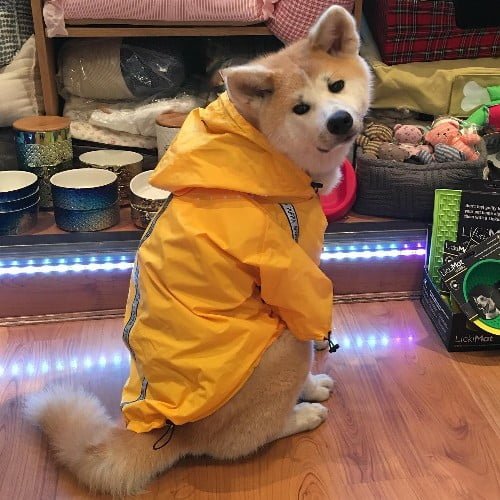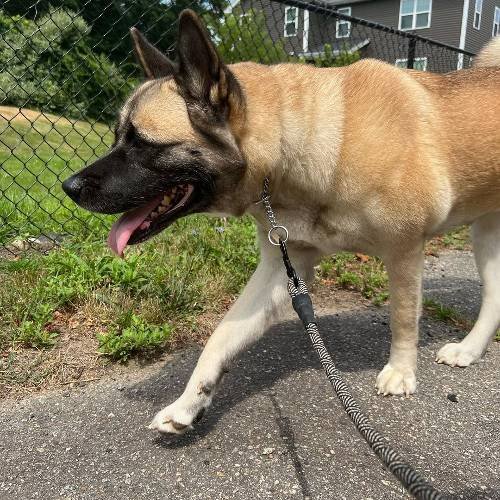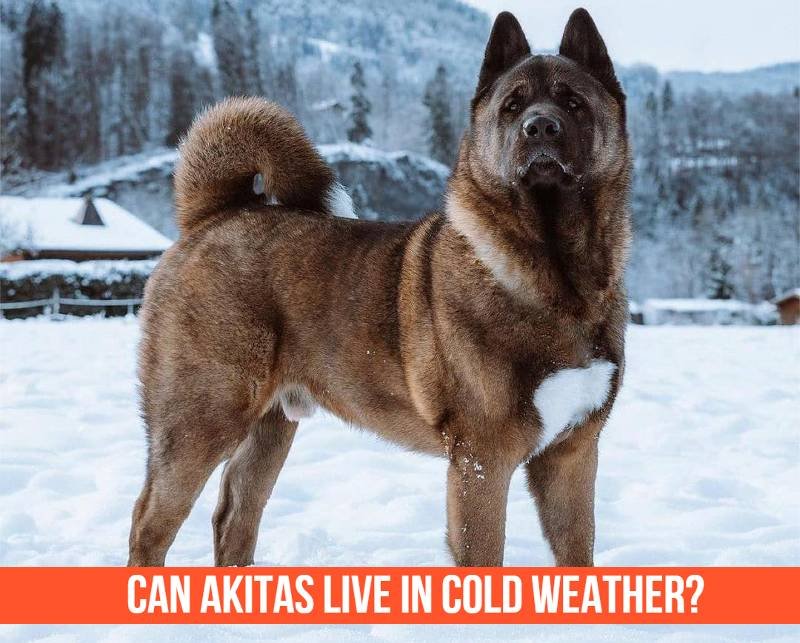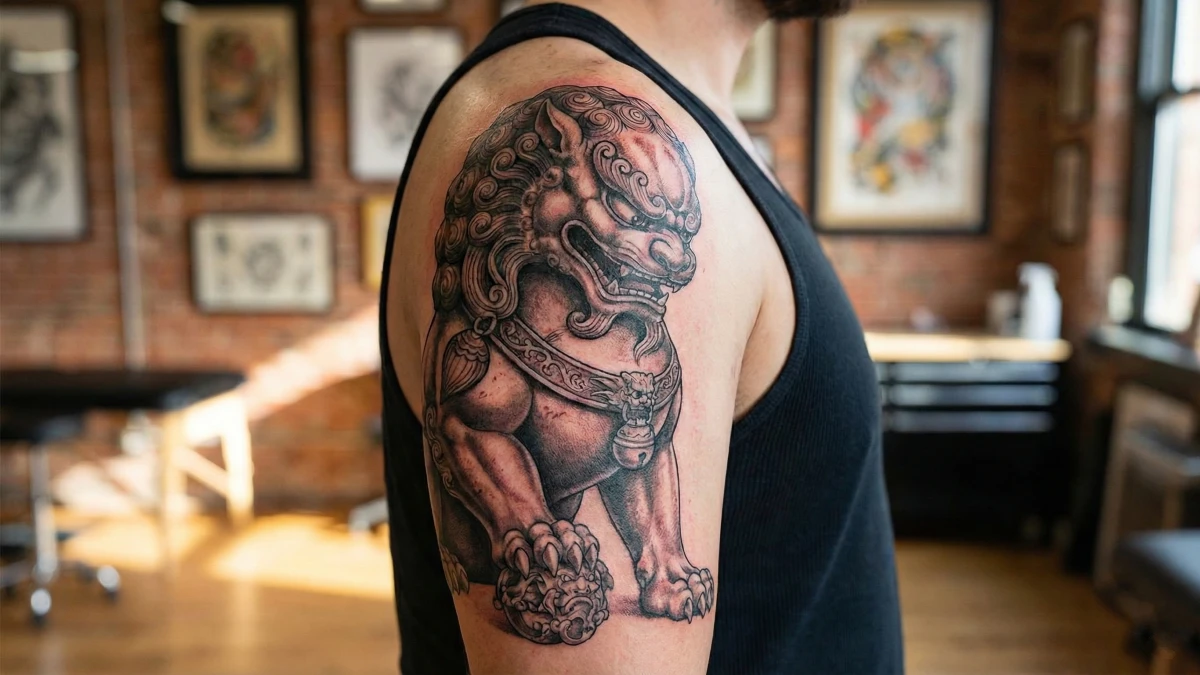Many people are interested in keeping an Akita as a pet, but are concerned about whether or not these dogs can tolerate cold weather. While Akitas are originally from Japan, where the climate is cooler than in many other parts of the world, they can adapt to living in a wide range of climates.
Whether or not Akitas can live in cold weather is a topic of much debate. Some people claim that they can tolerate the cold just fine, while others say that they need to live in a warm climate. The truth is, there is no one answer to this question. Each Akita will have his or her own tolerance for the cold, based on things like breed, age, and health.
In this blog post we’ll explore whether or not Akitas are suited for living in cold climates and provide some tips for keeping your furry friend warm during winter. So, whether you’re a new owner wondering about your Akita’s ability to handle the cold or an experienced owner looking for advice on how to keep your dog warm, read on!
Do Akitas Do Well In Cold Weather?
Akitas typically do well in cold weather and can even handle temperatures below freezing. However, it’s important to note that they are still susceptible to frostbite and other health issues in extremely cold weather. As such, it’s important to take some precautions when caring for your Akita in colder climates.
Some things you can do to care for your Akita in cold weather include:
- Brushing their coat regularly to prevent matting and keep it healthy
- Providing them with a warm, comfortable place to sleep inside
- Keeping an eye on their overall health and energy levels
- Make sure they have access to fresh, clean water at all times
Overall, Akitas are tough dogs that can handle living in cold weather climates.
How Much Cold Weather Can An Akita Tolerate?
Akitas are tough dogs that can withstand cold weather very well. They have a thick coat of fur that helps protect them from the elements.
Atikas can tolerate up to 5°F/-15C°. Beyond that, they may start to experience cold-related health problems. So it is important to bring them inside or provide a warm shelter if the temperature drops below -15C°.
However, it is important to not let your Akita stay out in the cold for too long. If you are going to be outside in the cold with your Akita, make sure to provide them with a warm place to stay and plenty of fresh water to drink.
They should not be kept outdoors in extreme weather conditions, as they are vulnerable to both heatstroke and frostbite.
What Kind Of Illness Can Atikas Go Into In Harsh Cold Weather?
There are many different types of illnesses that Atikas can go into when exposed to cold weather, some of which can be very serious. Some common illnesses include hypothermia, frostbite, and chilblains.
Hypothermia: It happens when the body loses heat faster than it can produce it, and body temperature drops below 95 degrees Fahrenheit.
Frostbite: It happens when the skin and underlying tissue freezes, and chilblains are painful sores that form on the skin after exposure to cold weather.
All of these illnesses can be extremely dangerous, and it is important to seek medical attention immediately if you think you or someone you know may be suffering from any of them.
While Atikas are generally hardy and can withstand cold weather better than most other dog breeds, they are still susceptible to these illnesses if they are not properly protected from the cold. If you live in an area with cold winters, be sure to take steps to protect your Atika from the potentially dangerous effects of exposure to the cold.
What Are The Ideal Weather Conditions For An Akita To Live In?
The ideal weather conditions for an Akita to live in would be a temperate climate with mild winters and summers. These dogs are originally from Japan and are used to living in cooler climates. However, they can adapt to living in warmer climates as long as they have access to shade and water to keep them cool.
They should also have access to a fenced-in yard or dog park where they can run and play. When it comes to humidity, the Akita prefers dry conditions but can also adapt to moderate levels of humidity.
Overall, as long as they are given proper care and attention, Akitas can live happily in a variety of climates.
5 Best Tips For Keeping Your Akitas Safe In Cold Weather
As winter hits and temperatures drop, your dog is going to want to curl up and hibernate.
Don’t Let Your Dogs Out in the Cold

First and foremost, if you live in an area that experiences extreme cold weather, be sure your dog isn’t out during the night or early morning hours. This is when your dogs tend to get into trouble the most, especially when it comes to getting their paws wet.
Also, be sure to protect your dog’s head by using a doggy headlight on him and a harness or lead in warm weather. These items will help your dog keep his body warm while keeping his head and ears protected.
Be Sure Your Dog Has Proper Clothing

You’ve got to make sure your dog is dressed properly for the weather, and you don’t want him to be shivering in the cold. Here are a few tips to help you get started:
First, Check out your dog has a waterproof jacket. If he doesn’t have one, he will need to wear something to keep him dry.
Second, be sure your dog has a coat to keep him warm. A thick, warm coat will keep him warmer during the cold weather.
Third, Verify your dog is wearing a sweater underneath his coat. This will help him stay warm, but also keep him from being overly cold.
Make Sure Your Dog Is Well Hydrated
Hydration is very important when it comes to the winter months. If you aren’t able to give him water often throughout the day, make sure you keep a bowl of water available in your house. Your dog needs about two cups of water per day to stay healthy.
Ensure that he gets some water every couple of hours throughout the day. Keep him away from the ice when you can. This will prevent him from getting overheated and developing an upset stomach. You should never give your dog water from a stream or lake.
These bodies of water can have a lot of bacteria in them. Your dog may be too weak to handle drinking out of these bodies of water, and if he does drink the water, he could get sick.
Consider using a heated dog crate or crate cover
A crate is a place where a dog can stay safe during bad weather conditions. It can be a warm or cold place depending on the weather. He will be comfortable in his own private space. You must keep your dog in his crate when it is cold outside. If he stays inside in cold weather, he will be more comfortable.
Make sure that he doesn’t get too cold. If he does, he may develop a condition called hypothermia. This is when a dog’s temperature gets too low. If your dog gets too cold, he will lose a lot of energy, which means that he will not be able to do anything very well. In some cases, dogs may even die from hypothermia.
Ensure your dog has enough exercise.

Dogs are active creatures, and this activity will keep them warm. Be sure to exercise your dog often to ensure this occurs. You should know that your dog needs to be exercised regularly. Exercise is a great way to keep your dog healthy and warm.
If your dog does not get any physical activity, he will get weaker and will be more likely to get intolerable toward cold weather. therefore, your dog should be able to exercise for at least two hours a day. He should walk, play with toys, and do other activities. This will help him to stay warm in winter.
How To Adapt Your Akita’s Life Style When The Cold Weather Arrives?
A lot of people believe that dogs should be confined indoors during cold weather because of the risk of frostbite. While this may apply to breeds with fur, like Siberian Huskies and malamutes, Akitas are typically shaggy coats. Their coats are designed to shed moisture, and they should be able to breathe freely.
However, you should adopt a certain specific lifestyle for your Atika’s comfort and safety in cold conditions. When the cold weather came, you need to some changes to your Akita’s lifestyle to ensure their safety and well-being. Here are a few tips on how to do so:
- Get them a winter coat or sweater. This will help keep them warm when they are outside.
- Limit their time outside. If it is too cold for you, it is probably too cold for them.
- Avoid walking them on ice or snow. They could slip and hurt themselves.
- Keep an eye on their paw pads. Ice and salt can irritate their skin.
- Be aware of frostbite and hypothermia. If your Akita’s skin is cold to the touch or they are shivering, get them inside immediately and warm them up slowly.
By following these tips, you can help your Akita stay safe and comfortable during the cold weather months.
What To Do If Your Akita Gets Sick In Cold Weather?
One is to make sure they are getting enough liquids. This means water and/or electrolyte solutions. You can add a little chicken or beef broth to their water bowl to make it more appealing, or give them ice cubes to lick.
Another thing you can do is to increase their caloric intake slightly. This means adding a little more food to their bowl or giving them some high-calorie treats like peanut butter or cheese.
Finally, make sure they are staying warm and dry. This means keeping them indoors as much as possible and making sure their bedding is clean and dry. If they are going outside, make sure they have a warm coat or sweater to wear.
If your Akita is showing signs of serious illness, such as difficulty breathing, lethargy, or vomiting, please see your veterinarian right away. They will be able to give your dog the best possible care and treatment.
Conclusion
To sum up, all that has been stated so far in this article, we can say that Atikas can withstand the extreme winter weather condition yet it is essential to take care of your Atika during the cold months and make sure they are comfortable. You should get them a winter coat or sweater, limit their time outside, avoid walking them on ice or snow, keep an eye on their paw pads, and be aware of frostbite and hypothermia.
For a variety of reasons, Akitas are susceptible to cold weather, but there are a few things you can do to help them feel better, such as increasing their caloric intake or making sure they are staying warm and dry. Symptoms of serious illness in your Akita, Immediately schedule an appointment with your veterinarian. Following these tips will help ensure that your Akita enjoys the winter months just as much as any other time of year.
FAQs
What type of coat do Akitas have?
Akitas have thick, double-coated fur that helps protect them from cold weather. The outer coat is coarse and sheds dirt and debris, while the inner coat is soft and insulates against the cold.
How much exercise do Akitas need in cold weather?
Akitas require moderate exercise to stay healthy and fit. A daily walk or play session is typically enough to meet their needs.
Do Akitas like to play in the snow?
Yes, they do like to play in the snow.
What are some common health problems associated with Akitas in extreme weather?
Akitas are generally a healthy breed, but like all dogs, they can be susceptible to certain health conditions. Some of the most common include hip dysplasia, elbow dysplasia, and allergies.
What is the best way to keep an Akita warm in cold weather?
The best way to keep an Akita warm in cold weather is to provide lots of exercises. You should walk your dog at least 2 miles a day. If you can’t walk your dog, then you should take it for long walks in the park.
How can I make my Akita happy in cold weather?
The best way to make your Akita happy in cold weather is to keep your dog inside. You should also make sure that your dog has plenty of fresh water and good nutrition.





